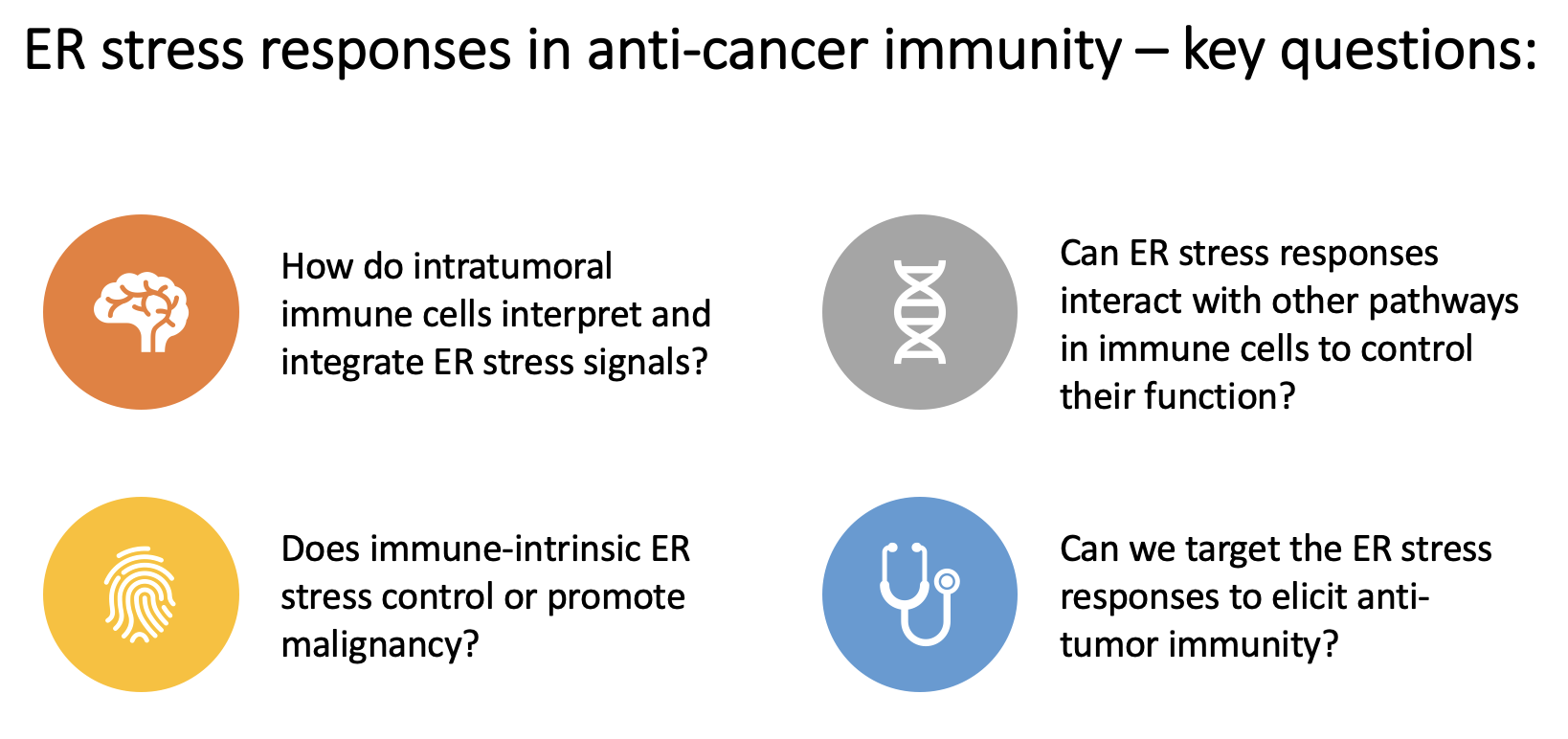
Research
Mounting optimal immune responses against malignant cells and pathogens requires high levels of protein synthesis, folding, modification, and trafficking in leukocytes, which are processes coordinated by the endoplasmic reticulum (ER). However, diverse extracellular and intracellular conditions can affect the protein-handling capacity of this organelle, inducing a state of ‘ER stress’ that activates the unfolded protein response (UPR). Our research has provided key insights into the role of ER stress response pathways in immunity, revealing its context-dependent impact on immune cell metabolism, function, and fate. We uncovered that activation of ER stress sensors can stimulate lipogenesis and prostaglandin biosynthesis in myeloid cells. Further, we established that in T cells experiencing nutrient restriction, the activation of ER stress sensors can regulate mitochondrial function and bioenergetics. Dysregulation of the UPR in immune cells can therefore contribute to various pathologies such as cancer, chronic pain, autoimmunity, inflammation, and metabolic disorders. Targeting abnormal ER stress responses has emerged as a promising approach to control or restore immune cell function in diverse pathological conditions. Our laboratory is interested in answering multiple questions relevant to the role of ER stress in immunity, with an emphasis on defining how the tumor microenvironment causes ER stress in multiple cell populations to evade immune control.
Figure 1

Figure 2

Current projects:
Understanding the role ER stress responses in immunity to pathogens and cancer
Targeting ER stress sensors to develop new forms of cancer immunotherapy
Defining how ER stress shapes host-microbe interactions
Uncovering how nutrition and metabolism drive anti-tumor immunity
Bio
Dr. Cubillos-Ruiz received his bachelor’s degree in microbiology from University of Los Andes (Bogota, Colombia) in 2004 and went on to earn his Ph.D. in Immunology from Dartmouth Medical School (Hanover, NH) in 2010. As a postdoctoral fellow at Harvard University and Weill Cornell, under the mentorship of Dr. Laurie Glimcher, Dr. Cubillos-Ruiz pioneered novel approaches to decipher the role of ER stress response pathways in cancer immunobiology. He has been tenure-track faculty member at Weill Cornell Medicine since 2015, where he leads groundbreaking research aimed at understanding the transcriptional and immunometabolic programs that ER stress controls in cancer, inflammation, infectious diseases, and pain.
Distinctions:
- The Bruce Laine Ballard, MD Award for Excellence in Mentorship. Weill Cornell Medicine. (2023)
- Diversity Champion, Weill Cornell Graduate School of Medical Sciences. (2022 - current)
- The Irma T. Hirschl and Monique Weill-Caulier Research Award. (2020 - 2025)
- The William J. Ledger, M.D., Endowed Professorship in Infection and Immunology, Weill Cornell Medicine (2018 – current)
- Pershing Square Sohn Prize for Young Investigators in Cancer Research. (2017 – 2020)
- Stand Up to Cancer Innovative Research Grant Recipient (2016 – 2019)
- Ovarian Cancer Academy–Early-Career Investigator Award, US Department of Defense. (2016 – 2021)
- The Wade F.B. Thompson CLIP Investigator Award, Cancer Research Institute. (2016 – 2018)
